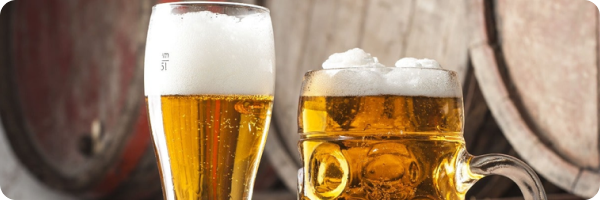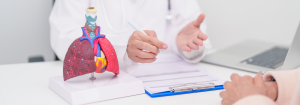By completing the alcohol consumption check in your Evergreen Life app, you may have found that there are some areas you want to change or improve when it comes to your drinking habits.
Not taken the alcohol check? Download the app here and take the available questionnaires in each section to start your wellness journey and look out for your notification to complete more questionnaires including the Alcohol Consumption Check.
We don’t have to look too far to find alcohol, but what do we really know about the short- and long-term effects of alcohol on our health? In this article, we share the effects that drinking too much can have, the benefits of cutting back, and tips on reducing alcohol consumption. Retake the alcohol consumption check once you’ve made the changes to see how your Wellness Score in your app changes.
If you experience any of the following, please contact your GP:
– you can’t stop drinking,
– you’ve failed to do what was expected of you because of your drinking,
– you need an early-morning drink to get going.
Mental health effects of alcohol
As alcohol can temporarily boost our mood, making us feel more confident and sociable, many people might down a drink or two to ‘improve’ their mental health.
However, the long-term reality is that it can worsen mental health symptoms and it’s linked to a range of issues from depression, anxiety, poor sleep and alcohol dependency. One of the questions in the Alcohol Consumption Check within your app asks whether alcohol has ever stopped you from doing what was normally expected of you. The mental effects of alcohol may make things more difficult than usual. Let’s delve deeper…
Feeling low
Alcohol is a depressant that can affect the chemicals in our brain. While initially, you may feel more relaxed and outgoing, continued excessive drinking can magnify your mood. So, if you’re already feeling down, angry or sad it can heighten these emotions. Regular consumption of alcohol can also decrease the level of serotonin our body produces, leading you to feel even more depressed.
Anxious thoughts
Heavy drinking can also worsen the symptoms of anxiety. For example, when the alcohol begins to wear off, you can feel as though you’re in fight or flight mode and can become anxious about things you might not usually worry about. This can range from feeling jealous of your partner talking to someone else, worrying about what you’ve said the night before and feeling anxious about what people think of you.
Heavy binge drinking
Binge drinking basically means drinking lots of alcohol in a short space of time or drinking to get drunk.
Drinking too much too quickly on a single occasion can increase your risk of:
- accidents resulting in injury
- misjudging risky situations
- losing self-control, such as having unprotected sex
Physical effects of alcohol

We all know that alcohol isn’t good for our health and can cause some regrettable hangovers but in the long-term it can also cause some serious health problems and is linked to a range of issues from weight gain, problems with sleeping, skin conditions and illnesses such as liver, mouth and oesophageal cancer.
Lose the booze to snooze
A few drinks before bed can make you feel sleepy and you might think that you’ll get a better night’s sleep for it. However, drinking can disrupt your sleep cycle causing a less restful and light sleep. Alcohol is a diuretic, meaning it encourages your body to lose extra fluid. So, it’s no surprise that after an evening of heavy drinking you’re up in the night going to the toilet, sweating and waking to drink water due to dehydration.
More than skin deep
Alcohol can have several effects on your skin. For example, alcohol is very dehydrating and can make your skin appear dry and tired looking. As your skin is very dry, your oil glands produce more oil to make up for water loss. This extra oil on your skin can break you out in spots and acne.
You may have also heard of the alcohol flush reaction, where your skin appears red after drinking… the red wine = red face look. Alcohol flush doesn’t affect everyone though as it actually depends on your genes.
Give up the drink and shrink your waist
Many of our favourite alcoholic drinks are much higher in sugar than most people realise, especially as alcoholic drinks aren’t required by UK law to display sugar content on labels. According to research commissioned by the Alcohol Health Alliance UK, a bottle of wine can contain up to 59g (or 15 teaspoons) of sugar. Meanwhile, a pint of cider can contain as many as five teaspoons of sugar. So, it’s no surprise that those cheeky after work pints have been sticking around on your waistline.
Alcohol and related diseases
Over many years, heavy drinking will gradually take its toll on your body and organs. The most common parts of the body damaged by long-term drinking are the brain, nervous system, heart, liver and pancreas. Heavy drinking can also increase your blood pressure and blood cholesterol levels, which are major risk factors for heart attacks, strokes and diabetes.
While this all sounds pretty scary, the main thing to remember is to drink responsibly and be aware of the effects that excessive drinking can have in the long-run.
Often, the first sign of problem drinking is not a disease but an accident – for instance, a fall, a fight or a car crash.
Benefits of reducing alcohol consumption
If you’ve noticed that your consumption is higher than recommended with an amber score in your Evergreen Life app, you may wish to make some positive changes to your habits. Even cutting down a bit can have a beneficial effect, so, if you’re someone who drinks alcohol, it doesn’t have to be as daunting as it might first appear.
Besides the obvious physical health benefits of reducing the amount of alcohol, the mental aspects are certainly enough to persuade us. Just imagine the joy of waking up anxiety-free, no hangover and being able to go out and enjoy the rest of your weekend with the money you’ve saved on not drinking!
Give it a shot and drink less
Try out our self-help strategies on curbing those drinking habits; here are a few of them:
Alcohol unitsUnfortunately, there’s no ‘safe’ drinking level, but there is advice on low-risk drinking. Men and women are advised to drink no more than 14 units over a week – of course, this doesn’t mean you have to drink that much, or anything at all! As a general rule, a pint of beer or cider contains between 2-3 units and one large glass of wine contains 3 units. To work out your weekly alcohol unit total try the drink calculator to see how much you’re currently drinking. Alternatively, check out our ‘Know your weekly alcohol units’ article for more information.
Stay hydratedWhen you do opt for alcohol, have a glass of water beforehand and alternate alcohol drinks with water to help you stay hydrated.
Alcohol free drinksAnother option is to try some non-alcoholic drinks. There’s now a much wider choice of alcohol-free drinks available other than your standard fizzy drink or fruit juice. There’s an abundance of alcohol-free beers, alcohol-free wines and mocktails that are just as fancy and tasty as the real deal! Bear in mind though, drinks like non-alcoholic beers can have a lot more sugar in than even their alcoholic counterparts.
Alcohol-free daysSome people set themselves certain days of the week where they don’t drink. Having specific alcohol-free days is a simple way of drinking a little less and feeling better for it. It’s also better to spread your drinking out rather than drinking over a couple of days. That’s why one of our Alcohol Consumption Check questions asked you how many units you drink in a typical day to assess binge habits. Try comparing your drinking habits with the rest of the UK here.
If you’ve recently quit alcohol, check out our tips for staying off alcohol for good.
Taking control of your health and wellbeing isn’t always the easiest of tasks, but with the Evergreen Life app it’s certainly a lot easier. You can monitor your fitness, keep track of medical records, set medication reminders and book doctors’ appointments online.
If you’re concerned about your drinking or someone else’s, visit the NHS’ Drink Less website for a range of alcohol support services.
We’re on a mission to help you understand what’s most important to live a healthier, longer life. Make sure to retake the Alcohol Consumption Check after to see if any changes you make are having a positive impact on your score and, more importantly, how you feel.
Reviewed by:
Dr Brian Fisher MBBch MBE MSc FRSA – Clinical Director
Anna Keeble MA BA Head of Content and Wellbeing Expert
- Alcohol Change (n.d.). Unit calculator. [online] Alcohol Change UK. Available here. [Accessed 21 Dec. 2023].
- Alcohol Health Alliance. (2022.). Sugar content in wine revealed: Health experts deem alcohol labelling ‘woefully inadequate’. [online] Available here. [Accessed 21 Dec. 2023].
- Cobb, C. and Cherney. K (2019). Does Alcohol Cause Acne? Effects of Beer, Wine, and More. [online] Available here. [Accessed 21 Dec. 2023].
- Drinkaware. (2023.). Alcohol and illegal drugs | Drinkaware. [online] Available here. [Accessed 21 Dec. 2023].
- Drinkaware. (2023.). Alcohol and sugar. [online] Available here. [Accessed 21 Dec. 2023].
- Mental Health Foundation (2022). Alcohol and mental health. [online]. Available here. [Accessed 21 Dec. 2023].
- NHS (2022). Alcohol advice. [online] . Available here. [Accessed 21 Dec. 2023].
- NHS (n.d.). Drink less – Better Health. [online]. Available here. [Accessed 21 Dec. 2023].
- NHS (2022). Risks – Alcohol misuse. [online] NHS. Available here. [Accessed 21 Dec. 2023].
- NHS Digital. (2022). Part 3: Drinking alcohol. [online] Available here. [Accessed 21 Dec. 2023].
- Seitz, A. and Lang, A. (2020). How Much Sugar Is in Beer? [online] Available here. [Accessed 21 Dec. 2023].





